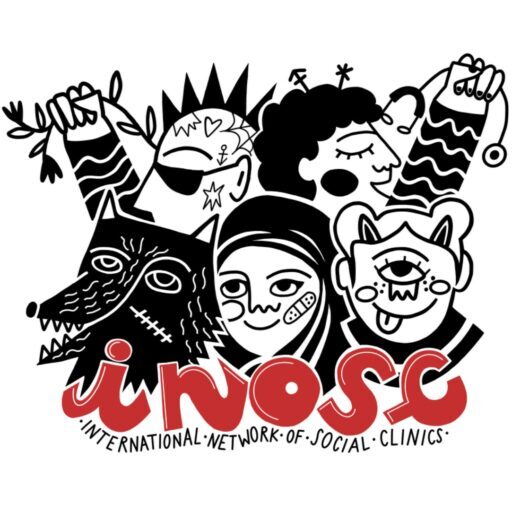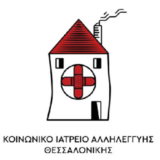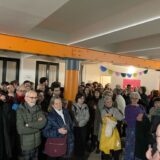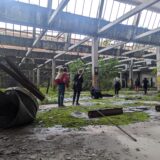section 4: Political meaning of care
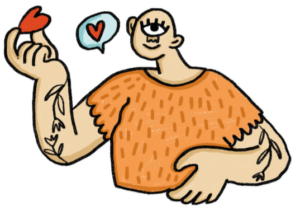 It may seem obvious what we mean by caring or taking care, whether it is provided by professionals or non-professionals. However, when we look at the definition of caring, it might cover somatic, emotional, mental and psychological well-being, safety, and dignity of ourselves and others. We believe that besides the care we take for ourselves or others individually, there is a collective care approach, which includes our families, friends, colleagues, and community. This approach is deeply political and intertwined with every aspect of our collective present and future.
It may seem obvious what we mean by caring or taking care, whether it is provided by professionals or non-professionals. However, when we look at the definition of caring, it might cover somatic, emotional, mental and psychological well-being, safety, and dignity of ourselves and others. We believe that besides the care we take for ourselves or others individually, there is a collective care approach, which includes our families, friends, colleagues, and community. This approach is deeply political and intertwined with every aspect of our collective present and future.
The political dimension of care refers to how care is influenced and how it in turn influences political systems and structures. Care is not only a private or individual matter, but it also has important social and political implications. The provision of care can be shaped by political decisions and policies, such as funding for healthcare and social services, labor laws, and regulations and immigration policies. Social clinics fight to remove the bureaucratic, economic, and language barriers that prevent people from accessing the healthcare system. This form of political action can sometimes take the form of conflict and protest, aiming to guarantee universal access to healthcare and uphold the right to health for al. We also propose a politicized model of care and health, starting with the common struggle – and ideological premise – for free public health care for all. At the same time, care can also challenge political systems and structures by questioning and subverting dominant power relations and advocating for more equitable systems. Care work-often undervalued and underpaid-is disproportionately carried out by women, racialized individuals, and immigrants.This has led to the rise of intersectional political and social movements that advocate for better working conditions, higher wages, and greater recognition of care work. These movements raise critical questions and remind us that care is essential to our social fabric and must be placed at the heart of political discussions. Rather than prioritizing profit, we should place collective well-being at the centre of how we organize labor and production.
The political dimension of caring also extends to broader social and environmental concerns. Caring for your neighborhood by addressing long-standing community problems or gathering collective solutions can be seen as acts of care. Tackling climate change and caring for the planet is another example of the political dimension of care. Overall, the political dimension of care highlights how care is shaped by and shapes social and political structures and emphasizes the importance of advocating for more just and equitable systems of care. For these reasons, we strongly support the convergence of political struggles and directly take part in broader social and political movements which fight the intersectional oppression of our society.
We believe that social clinics, with our way of thinking, of organizing, of being part of our wider communities, are an example of radical change. The values and practices of social clinics contribute to addressing not only healthcare issues but also larger humanitarian and ecological crises. By operating as self-managed collectives, social clinics set an example for
restructuring society in a fair, equitable, just, consistent and anti-authoritarian way.
microclinica Fatih
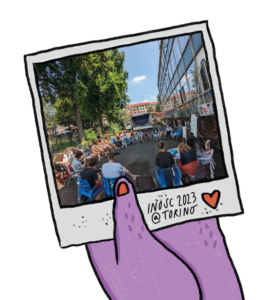 The social clinic “Microclinica Fatih” played a key role in activism against the Turin Immigration Detention Center (Centro di Permanenza e Rimpatrio – CPR) in collaboration with other political collectives. Our contribution was to expose the severe inadequacies in medical care and healthcare assistance within the CPR.
The social clinic “Microclinica Fatih” played a key role in activism against the Turin Immigration Detention Center (Centro di Permanenza e Rimpatrio – CPR) in collaboration with other political collectives. Our contribution was to expose the severe inadequacies in medical care and healthcare assistance within the CPR.
The clinic raised public awareness on the involvement of the Medical Association of Turin (OMCEO Torino), which had entered into a cooperation project with the private operator of the CPR. This project encouraged volunteer doctors to offer their services but failed to prevent a tragic suicide within the CPR or provide transparency regarding its operations.
Through an open letter addressed to the Medical Association and a public protest held outside its offices, the clinic and its allies succeeded in effecting the withdrawal of the cooperation project. The Turin CPR ultimately shut down thanks to persistent protests by detainees who, through acts of defiance, rendered it uninhabitable. Their actions, combined with the relentless advocacy of groups like Microclinica Fatih, brought an end to the facility.
Today, the clinic continues to draw attention to the profound injustice in the treatment of migrants in Italy’s immigration detention system.
Next: section 5: Organisational models, Autogestion and Decision-making processes
